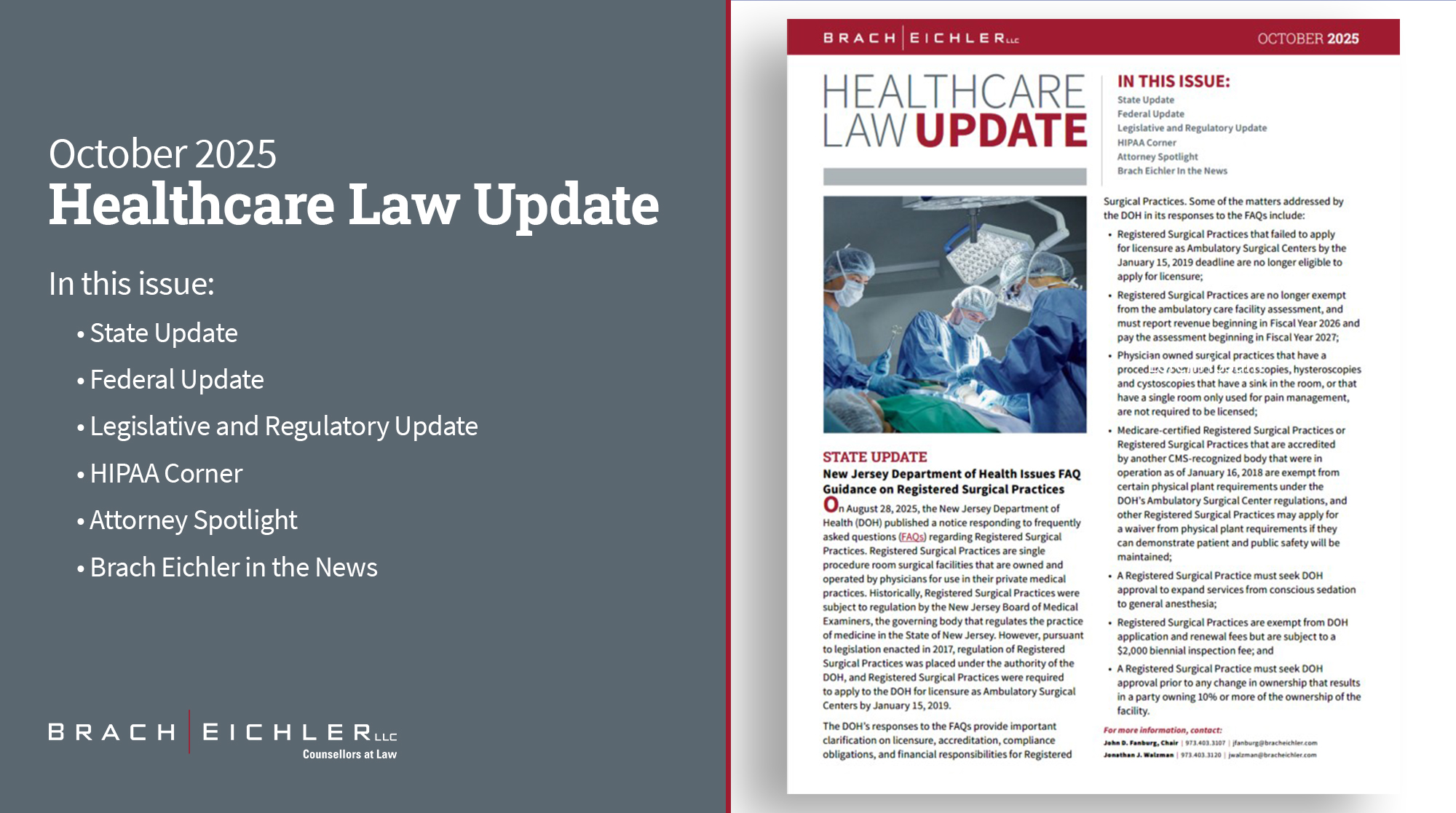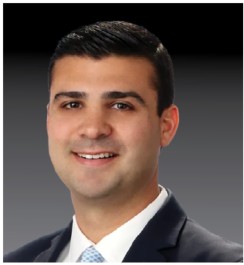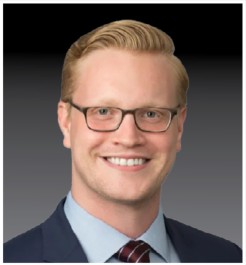
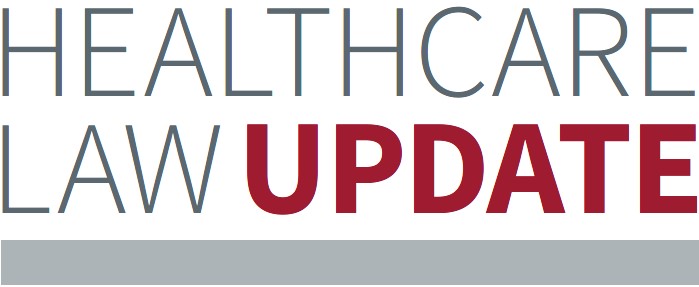

On August 28, 2025, the New Jersey Department of Health (DOH) published a notice responding to frequently asked questions (FAQs) regarding Registered Surgical Practices. Registered Surgical Practices are single procedure room surgical facilities that are owned and operated by physicians for use in their private medical practices. Historically, Registered Surgical Practices were subject to regulation by the New Jersey Board of Medical Examiners, the governing body that regulates the practice of medicine in the State of New Jersey. However, pursuant to legislation enacted in 2017, regulation of Registered Surgical Practices was placed under the authority of the DOH, and Registered Surgical Practices were required to apply to the DOH for licensure as Ambulatory Surgical Centers by January 15, 2019.
The DOH’s responses to the FAQs provide important clarification on licensure, accreditation, compliance obligations, and financial responsibilities for Registered
Surgical Practices. Some of the matters addressed by the DOH in its responses to the FAQs include:
• Registered Surgical Practices that failed to apply for licensure as Ambulatory Surgical Centers by the January 15, 2019 deadline are no longer eligible to apply for licensure;
• Registered Surgical Practices are no longer exempt from the ambulatory care facility assessment, and must report revenue beginning in Fiscal Year 2026 and pay the assessment beginning in Fiscal Year 2027;
• Physician owned surgical practices that have a procedure room used for endoscopies, hysteroscopies and cystoscopies that have a sink in the room, or that have a single room only used for pain management, are not required to be licensed;
• Medicare-certified Registered Surgical Practices or Registered Surgical Practices that are accredited by another CMS-recognized body that were in operation as of January 16, 2018 are exempt from certain physical plant requirements under the DOH’s Ambulatory Surgical Center regulations, and other Registered Surgical Practices may apply for a waiver from physical plant requirements if they can demonstrate patient and public safety will be maintained;
• A Registered Surgical Practice must seek DOH approval to expand services from conscious sedation to general anesthesia;
• Registered Surgical Practices are exempt from DOH application and renewal fees but are subject to a $2,000 biennial inspection fee; and
• A Registered Surgical Practice must seek DOH approval prior to any change in ownership that results in a party owning 10% or more of the ownership of the facility.
For more information, contact:
John D. Fanburg, Chair | 973.403.3107 | jfanburg@bracheichler.com
Jonathan J. Walzman | 973.403.3120 | jwalzman@bracheichler.com

On September 15, 2025, the Department of Labor proposed regulations to implement the New Jersey Employment Transparency Act, which became effective on June 1, 2025. Highlights of the proposed regulations include the following:
• Expanding who is considered an employee of an employer to include all of an employer’s employees, whether or not they work in New Jersey or out-of-state.
• The obligation to use reasonable “efforts” to notify employees of promotional opportunities would require employers to post notices both physically in the workplace and, if available, on an employee intranet.
• When an employer includes a range of pay in a job advertisement, the minimum pay to maximum pay ratio must be no more than 60%.
Comments to the proposed regulations are due by November 15, 2025.
For more information, contact:
Caroline J. Patterson, Vice Chair | 973.364.5233 | cpatterson@bracheichler.com
Edward Hilzenrath, HLU Editor | 973.403.3114 | ehilzenrath@bracheichler.com
Erika R. Marshall | 973.364.5236 | emarshall@bracheichler.com
On September 5, 2025, in a significant policy reversal, the Federal Trade Commission (FTC) announced its official withdrawal of its non-compete rule that aimed to ban non-compete agreements for most U.S. workers. The withdrawal of the rule was accompanied by the dismissal of appeals that had been filed in an effort to overturn a federal court’s decision striking down the rule.
On April 23, 2024, the FTC adopted the non-compete rule, which would have voided employer contracts, workplace policies, and compensation arrangements that prohibit, penalize, or in practice prevent a worker from working, with a few limited exceptions. At the time, the FTC argued that such agreements suppressed wages and hindered job mobility, thereby stifling competition and innovation in the labor market. However, the rule faced immediate legal challenge. In August 2024, the U.S. District Court for the Northern District of Texas ruled that the FTC lacked the statutory authority to enforce the rule, deeming it “unreasonably overbroad” and “arbitrary and capricious.” The Department of Justice subsequently filed appeals of the decision.

While withdrawing the non-compete rule, the FTC has not refrained from a targeted approach, addressing specific instances of anti-competitive behavior rather than imposing a blanket ban. On September 4, 2025, the FTC took action against Gateway Services, Inc. and Gateway US Holdings, Inc., the largest pet cremation business in the U.S. The FTC alleges that Gateway required nearly all employees to sign non-compete agreements that typically prohibited them from working in the pet cremation industry anywhere in the U.S. for one year after leaving Gateway. Under a proposed consent order, Gateway would be required to immediately cease enforcing all existing non-compete agreements.
For more information, contact:
John D. Fanburg, Chair | 973.403.3107 | jfanburg@bracheichler.com
Edward Hilzenrath, HLU Editor | 973.403.3114 | ehilzenrath@bracheichler.com
Vanessa Coleman | 973.364.5208 | vcoleman@bracheichler.com
On August 28, 2025, the American Society of Anesthesiologists, the American College of Emergency Physicians and the American College of Radiology filed an Amici Curiae brief to the U.S. Court of Appeals for
the Fifth Circuit in a Texas Medical Association case regarding the federal No Surprise Act.
In July 2021, the federal agencies who are appellants in the case—the Department of Health and Human Services, the Department of Labor, the Department of the Treasury, and the Office of Personnel Management—published an interim final rule under the No Surprises Act (NSA) to implement the NSA’s independent dispute resolution process. The rule established a methodology for calculating the qualifying payment amount (QPA) that the physician organizations argue conflicts with the NSA, produces inaccurate QPAs, unlawfully suppresses reimbursement rates for out-of-network physician services and threatens patient access to care.
The physician organizations requested that the Appeals Court affirm the District Court’s judgment invalidating the rule’s provisions that incorrectly calculate the QPA when determining out-of-network payments. The case is now being considered en banc, meaning all active judges of the Fifth Circuit will review the matter collectively, rather than the typical three-judge panel. Given the central role of the QPA in the NSA framework, the Court’s ruling could have significant implications for physician reimbursement practices and patient access nationwide.
For more information, contact:
Riza I. Dagli | 973.403.3103 | rdagli@bracheichler.com
Richard Robins | 973.447.9663 | rrobins@bracheichler.com
Vanessa Coleman | 973.364.5208 | vcoleman@bracheichler.com
On August 7, 2025, the U.S. Department of Health and Human Services, Office of Inspector General (OIG) issued favorable advisory opinion No. 25-09 for an arrangement involving a medical device company partially owned by physicians, including the creator of the medical devices. Specifically, the advisory opinion analyzed whether remuneration to the physician owners was prohibited under the Anti-Kickback Statute (AKS) and the civil monetary penalty law (CMPL). The physicians, in the aggregate, own approximately 35% of the company, and may order or purchase the company’s devices or recommend that a hospital order and purchase the company’s devices. No other owners of the company are in a position to make or influence referrals to the company.
The OIG re-iterated its long-standing position that arrangements involving physicians who own a medical device company and are in a position to make referrals to, and receive profits distributions from, that company are inherently suspect under the AKS. However, under the unique facts presented, the arrangement is protected by the small entity investment safe harbor of the AKS because the arrangement satisfies all the required elements of the safe harbor:
• No more than 40% of investment interests are held by referral sources;
• Investment terms for investors in a position to make referrals to the company are the same as investors who are not in a position to make referrals to the entity;
• Investment terms are not related to referrals or generation of business;
• Investors are not required to make referrals or generate business for the company;
• There is no difference in marketing or furnishing the company’s devices to investors and non-investors;
• No more than 40% of the company’s gross revenue is from referrals or business generated from investors;
• No loans or loan guarantees were provided by the company or any investor to another investor to acquire their investment interests in the company;
• Payment to an investor for their investment interest is directly proportional to the amount of the capital investment of that investor.
For more information, contact:
Caroline Patterson | 973.364.5233 | cpatterson@bracheichler.com
Edward J. Yun | 973.364.5229 | eyun@bracheichler.com
Cynthia J. Liba | 973.403.3106 | cliba@bracheichler.com
On July 15, 2025, the Centers for Medicare & Medicaid Services (CMS) issued the Calendar Year 2026 Hospital Outpatient Prospective Payment System (OPPS) and Ambulatory Surgical Center (ASC) Payment System proposed rule, outlining reforms to modernize payments, expand patient choice, and strengthen hospital accountability. The proposed rule seeks to reduce out-of-pocket costs for Medicare beneficiaries, expand
care options, improve transparency, and safeguard the Medicare Trust Fund from waste and abuse.
Key provisions of the proposed rule include:
• Equalize payments for certain services across hospitals and off-campus facilities to prevent higher copays based solely on site of care.
• Phase out the inpatient-only list to give physicians greater flexibility to determine the most clinically appropriate setting for care and allow more patients to choose outpatient surgical options.
• Require hospitals to post standardized, consumer-friendly pricing data, with civil monetary penalties for noncompliance.
• Update the Hospital Star Rating system so that hospitals performing in the lowest quartile for safety cannot earn a 5-star rating, with automatic 1-star downgrades in future years.
• Streamline reporting by removing certain health equity and COVID-19 vaccine reporting requirements.
• Add new measures to evaluate prolonged emergency room wait times.
• Solicit input on nutrition, wellness, and prevention.
CMS estimates the reforms will expand access, reduce unnecessary costs, and generate nearly $11 billion in savings for Medicare and its beneficiaries over the next decade, while advancing Medicare’s long-term goal of delivering high-quality, patient-centered care.
For more information, contact:
Joseph Gorrell | 973.403.3112 | jgorrell@bracheichler.com
Edward J. Yun | 973.364.5229 | eyun@bracheichler.com
Vanessa Coleman | 973.364.5208 | vcoleman@bracheichler.com
On August 22, 2025, a Maryland Federal District Court issued a preliminary injunction temporarily staying certain regulatory changes enacted by the Department of Health and Human Services (HHS) that would restrict enrollment in Affordable Care Act marketplace health plans. The Court’s ruling addressed a challenge filed by several cities and non-profit groups under the Administrative Procedure Act against a set of changes in the “Marketplace Integrity and Affordability” final rule adopted by HHS that the plaintiffs argued would increase health insurance premiums, reduce coverage, impose burdensome
barriers, especially for lower-income individuals, and shift costs onto cities, providers and non-profit organizations. HHS defended the changes as necessary to address fraud, improper enrollments and distortions in the risk pool.

In its decision, the Court temporary delayed enactment of seven of the rule’s most consequential provisions, including a $5 monthly premium for individuals who automatically reenroll in coverage and do not confirm their eligibility for $0 premium, and a policy disqualifying people from receiving subsidies who fail to reconcile tax credits with their income. The Court also paused the elimination of guaranteed coverage for people whose premiums are past due; the imposition of higher income verification standards if exchanges find inconsistencies in tax data; a policy requiring stricter eligibility checks ahead of a special enrollment period; and changes to the formula used to sort exchange plans into different coverage tiers.
The new rules were set to take effect on August 25, 2025. The Court’s decision puts the policies on hold until the case concludes, which will likely take several months.
For more information, contact:
Keith J. Roberts | 973.364.5201 | kroberts@bracheichler.com
Shannon Carroll | 973.403.3126 | scarroll@bracheichler.com
Paul DeMartino, Jr. | 973.364.5228 | pdemartino@bracheichler.com
As part of the final rule published by the Department of Health and Human Services (HHS) in August 2025 regarding changes to the Medicare Hospital Inpatient
Prospective Payment Systems and the Long-Term Care Hospital Prospective Payment System for Fiscal Year 2026, HHS finalized rules for Medicare certified electronic health records systems. According to HHS, the final rule complements policies advanced by the Centers for Medicare & Medicaid Services in recent years and expands interoperability for patients, health care providers, and payers to ease administrative burdens.
The final rule includes provisions that accelerate electronic prior authorizations by enabling providers to electronically submit prior authorizations using certified platforms, resulting in faster care authorization decisions and more transparency for patients and providers. In addition, the final rule will improve drug cost transparency by enabling prescribers to compare drug prices during care encounters in real time and identify lower cost alternatives available under a patient’s insurance coverage, particularly patients with prescription benefits under Medicare Part D.
For more information, contact:
Carol Grelecki | 973.403.3140 | cgrelecki@bracheichler.com
Jonathan J. Walzman | 973.403.3120 | jwalzman@bracheichler.com
Andrew M. Kuder | 973.403.3141 | akuder@bracheichler.com
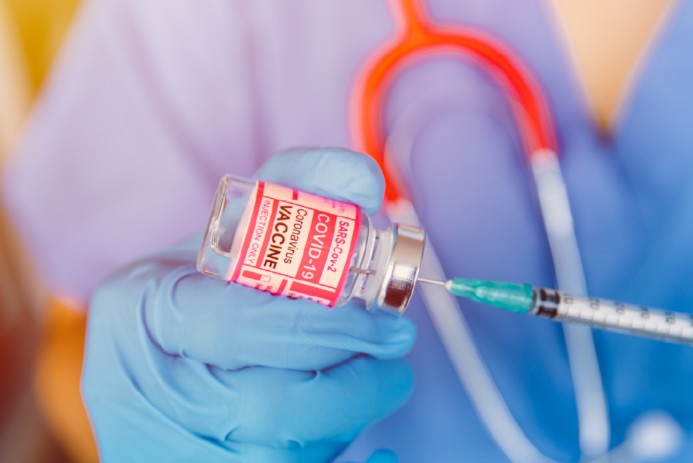
Effective August 27, 2025, the United States Food and Drug Administration (FDA) has revoked the Emergency Use Authorizations for the Pfizer and Moderna COVID-19 vaccines that were implemented beginning in late 2020. The Emergency Use Authorizations, which were implemented during the height of the COVID-19 pandemic, made the Pfizer and Moderna COVID vaccines easily accessible for nearly all Americans by allowing access to the vaccines without a prescription.
As a result of the revocation of the Emergency Use Authorization, individuals under the age of 65 without a preexisting condition may be required to obtain a valid prescription in order to receive a COVID-19 vaccination.
For more information, contact:
Lani M. Dornfeld, CHPC | 973.403.3136 | ldornfeld@bracheichler.com
Jonathan J. Walzman | 973.403.3120 | jwalzman@bracheichler.com
Andrew M. Kuder | 973.403.3141 | akuder@bracheichler.com

On September 15, 2025, the New Jersey Board of Medical Examiners proposed amendments to the regulations governing the use of medical cannabis. These amendments would update language used throughout the regulations to reflect the same terminology used in the Jake Honig Compassionate Use Medical Cannabis Act. Among the proposed amendments, the Board is seeking to require that physicians have a US DEA registration and complete the curriculum established by the New Jersey Cannabis Regulatory Commission in order to participate in authorizing medical cannabis use to patients. In addition, the amendments would require participating physicians to be responsible for the ongoing treatment of a patient’s qualifying medical condition. Comments to the proposed amendments are due by November 14, 2025.
On September 15, 2025, New Jersey’s Division of Medical Assistance and Health adopted new regulations which list the features a provider’s e-signature software should,
at a minimum, include: (1) encryption; (2) individuals passwords; (3) password-protected access; (4) verification of user signature; and (5) the transmission of data must be in an electrically protected format from the user to the 3rd party. Additionally, acceptable e-signatures may include date and timestamps and include printed statements indicating that the document was signed electrically.
On August 21, 2025, New Jersey Governor Phil Murphy signed in to law Assembly Bill No.5792, requiring employers to provide up to twelve hours of paid, confidential counseling for first responders after critical incidents, with up to twenty-four more hours if needed. Counseling is covered by workers’ compensation and must be available during work hours without using leave.
On September 2, 2025, the New Jersey Board of Dentistry proposed new rules to establish the requirements for a dentist to become certified to administer vaccines, and which vaccines and emergency medications a certified dentist may administer. Comments are due by November 1, 2025.
For more information, contact:
John D. Fanburg, Chair | 973.403.3107 | jfanburg@bracheichler.com
Edward Hilzenrath, HLU Editor | 973.403.3114 | ehilzenrath@bracheichler.com
Erika R. Marshall | 973.364.5236 | emarshall@bracheichler.com
Fox 11 Los Angeles, the Santa Barbara Independent and other news outlets recently reported that several health care workers at an urgent care facility operated by Sutter Health were fired after posting a “dehumanizing” TikTok about patient bodily fluids left behind on exam table paper coverings. Responding posters added photos and remarks about marks and stains left behind by patients. Sutter Health was quick to respond, stating “Sutter Health has terminated the employees responsible for the inappropriate and insensitive photos posted on social media. This unacceptable behavior is an outright violation of our policies, shows a lack of respect for our patients and will not be tolerated.” What is interesting about this incident is that, although no protected health information about any specific patient was revealed and none of the photos showed any patient in the images, staff were nonetheless fired for what
was deemed inappropriate and insensitive conduct that violates patient trust. One takeaway from this incident is that HIPAA training should include social media use and the need to avoid any posts relating to patient care, whether or not the poster believes specific patient information was omitted from such posts.

The U.S. House of Representatives Committee on Oversight and Government Reform recently sent a letter to the President and CEO of CVS Health, expressing its concern about CVS’s “use of confidential patient information on June 11, 2025, to send a ‘mass text message’ to thousands of Louisiana CVS customers, including state employee members of the Office of Group Benefits (OGB), for the purpose of influencing Louisiana legislators.” Further, the “text message campaign raises ethical and potential legal issues if indeed CVS Pharmacy used confidential patient information, obtained through a state contract, to lobby against H.B. 358.” The Committee stated that HIPAA does not permit the use and disclosure of patient information for political advocacy or lobbying activities without obtaining each patient’s written authorization. The Committee included in the letter a number of information and document demands and a deadline for response. The fallout from this incident should serve as a reminder to covered entities and their business associates to be mindful about their uses and disclosures of patient information and performing assessments to determine when written patient authorizations are required.
If you need assistance with your HIPAA compliance program, an OCR investigation, or a data breach incident, please contact:
Lani M. Dornfeld, CHPC | 973.403.3136 | ldornfeld@bracheichler.com
Get to know the faces and stories of the people behind the articles in each issue. This month, we invite you to meet Counsel Paul J. DeMartino, Jr. and Associate Andrew M. Kuder.
In your opinion, what is the most pressing legal issue currently facing the healthcare industry?
While not exclusively legal, the most pressing issue facing the industry is the shortage of healthcare clinicians. In addition to the limited pipeline of new professionals due to rising educational costs and limited residency spots, the shortage will be exacerbated as the aging population will be more dependent on the need for healthcare services. Further, every cancellation, delayed procedure, lengthened patient wait-time or inefficient workflow accelerates burnout of the existing provider base.
What personal qualities or skills do you think are most important for a healthcare attorney to cultivate, both professionally and personally?
Communication and adaptability are key skills. First, communication is imperative as you must be able to listen to fully comprehend the client’s needs and then effectively convey the position, message or goal to an adversary, Judge, jury, or regulating body. Second, given the evolving regulatory landscape of the healthcare industry, the ability to adapt is paramount as you are required to stay current and adjust strategies or methodologies as laws, regulations and technology are constantly evolving.
In your opinion, what is the most pressing legal issue currently facing the healthcare industry?
New artificial intelligence products are being rolled out that provide incredible insights, which will result in more efficient and cost-effective patient care. The main problem with healthcare AI systems is what I refer to as the Hal Problem, which is an essential question every stakeholder in the healthcare ecosystem, particularly providers and lawmakers, will be struggling with in coming years—Can I trust the AI? This problem is pervasive at every single level of a patient’s care—from questioning whether the AI properly read a scan or diagnosed a patient’s symptoms correctly, to questioning whether the diagnostic tool or an AI scribe is complying with HIPAA and state privacy laws, to whether the payor or billing company’s AI is accurately coding, billing, or approving claims. The answers to the Hal Problem will determine how lawmakers allow AI to be integrated into the healthcare ecosystem and how providers and other stakeholders decide to do so. Healthcare AI will touch every dollar of the healthcare ecosystem, and all stakeholders should be thinking critically about how this will impact their part in it.
What personal qualities or skills do you think are most important for a healthcare attorney to cultivate, both professionally and personally?
At the end of the day, the goal of a robust healthcare ecosystem is to improve the health and quality of life of patients. A good healthcare attorney should not only have an understanding of the legal landscape, but should also understand the economic realities for stakeholders that come with the pursuit of top tier health outcomes and quality of life for patients. I’ve found that healthcare attorneys that keep this top of mind are not only better at advocating for their clients, but also find their work more rewarding.

On September 18, Managing Member and Healthcare Law Chair John D. Fanburg presented a Legal & Legislative Update at the New Jersey Association of Ambulatory Surgery Centers.
On September 8, Chair of Brach Eichler’s Litigation Practice and Healthcare Law Member Keith J. Roberts shared his perspective on the Trump Administration’s AI Action Plan on healthcareinnovation.com in an article entitled “Attorney Weighs in on Administration’s AI Action Plan.”
On September 2, Chair of Brach Eichler’s Litigation Practice and Healthcare Law Member Keith J. Roberts was named a recipient of NJBIZ’s “2025 Executive Excellence Award.” Keith is recognized as a leading practitioner in healthcare and regulatory law, representing hospital systems, surgical centers, medical practices, and healthcare professionals in complex litigation and regulatory matters.
On September 2, Brach Eichler was proud to be recognized in the New Jersey Law Journal’s “2025 Legal Awards” across multiple categories:
Finalists
• “Law Firm of the Year”
• “Litigation Department of the Year” – General (Keith J. Roberts, Chair)
• “Mentor of the Year” – Anthony M. Rainone
• “Dealmaker of the Year” – John D. Fanburg Winners
Winners
• “Unsung Hero” – Hon. Lisa F. Chrystal, P.J.F.P. (Ret.)
• “New Leader of the Bar” – Doris Cheung

Attorney Advertising: This publication is designed to provide Brach Eichler LLC clients and
contacts with information they can use to more effectively manage their businesses. The contents
of this publication are for informational purposes only. Neither this publication nor the lawyers who
authored it are rendering legal or other professional advice or opinions on specific facts or matters.
Brach Eichler LLC assumes no liability in connection with the use of this publication.

Riza I. Dagli | 973.403.3103 | rdagli@bracheichler.com
Lani M. Dornfeld, CHPC | 973.403.3136 | ldornfeld@bracheichler.com
John D. Fanburg, Chair | 973.403.3107 | jfanburg@bracheichler.com
Joseph A. Ferino | 973.364.8351 | jferino@bracheichler.com
Joseph M. Gorrell | 973.403.3112 | jgorrell@bracheichler.com
Carol Grelecki | 973.403.3140 | cgrelecki@bracheichler.com
Caroline Patterson, Vice Chair | 973.364.5233 | cpatterson@bracheichler.com
Keith J. Roberts | 973.364.5201 | kroberts@bracheichler.com
Richard B. Robins | 973.447.9663 | rrobins@bracheichler.com
Jonathan J. Walzman | 973.403.3120 | jwalzman@bracheichler.com
Edward J. Yun | 973.364.5229 | eyun@bracheichler.com
Edward Ellersick | 973.364.5205 | eellersick@bracheichler.com
Debra W. Levine | 973.403.3142 | dlevine@bracheichler.com
Erika R. Marshall | 973.364.5236 | emarshall@bracheichler.com
Tracy Miller | 973.403.3102 | tmiller@bracheichler.com
Rebecca T. Falk | 973.364.8393 | rfalk@bracheichler.com
Roseland, NJ | New York, NY | West Palm Beach, FL | www.bracheichler.com | 973.228.5700


